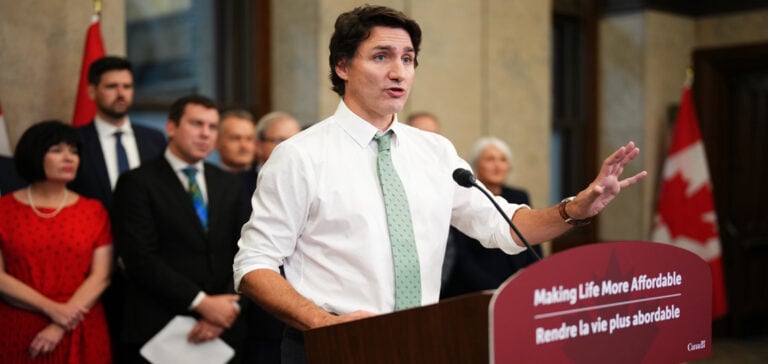Canadian Prime Minister Justin Trudeau’s decision to exempt residents of Eastern Canada who heat with oil from the carbon tax has sparked a major controversy. This measure, announced last week, is due to be in force for three years and concerns the Atlantic regions in the east of the country. However, it has sparked anger in western Canada, where the majority of residents use natural gas for heating.
Regional Divisions and Political Reactions
Eastern Canada is a region traditionally favourable to Trudeau’s progressive government. However, since the introduction of the carbon tax in June, the Prime Minister’s popularity has plummeted in the four eastern provinces. In Parliament, Opposition Leader Pierre Poilievre strongly criticized the measure, accusing the government of dividing Canadians based on where they live. He urged Mr. Trudeau to cancel the taxes so that Canadians could continue to heat their homes at no extra cost.
The controversy intensified when Scott Moe, Premier of the province of Saskatchewan in west-central Canada, threatened to stop collecting carbon taxes on natural gas. He argued that the exemption granted to fuel oil effectively excluded his province, creating “two classes of taxpayers.”
The Trudeau Government’s Environmental Goal
In the face of this criticism, Justin Trudeau has maintained his decision to exempt households relying on fuel oil from the carbon tax. He explained that these were the most vulnerable households, with modest incomes, and that no further waivers or suspensions would be granted. In addition, he announced that these households would benefit from subsidies to facilitate their transition to the installation of more environmentally-friendly heat pumps.
According to government data, Canadians still largely use fossil fuels for heating, which contributes to the production of around 35 megatons of CO2 per year, or nearly 6% of total national annual carbon emissions. The Trudeau administration has set itself the goal of reducing the country’s carbon emissions by 40% to 45% by 2030 compared to 2005 levels, with the carbon tax being its flagship measure for achieving this objective.
The controversy surrounding the carbon tax exemption in Eastern Canada highlights national divisions and environmental concerns. Justin Trudeau maintains his stance in favor of vulnerable households, but critics persist, highlighting the challenges of transitioning to cleaner, more sustainable energy sources. The debate surrounding the carbon tax continues to raise tensions within the country.






















